June 10–11 | Boston, MA
2024 Annual Symposium on Risks and Opportunities of AI in Pharmaceutical Medicine
Generative AI in Medical Research & Drug Development: Hype or Reality?

About the Symposium
Where will the AI revolution take pharmaceutical science?
- Statisticians, data scientists, regulators, and other professionals to address the challenges and opportunities of AI in pharmaceutical medicine.
- Fostering collaboration among industry, academia, regulatory agencies, and professional associations.
- Discussing policy implications for proper implementation of AI in promoting public health.
Date:
June 10-11, 2024
Location:
Northeastern University, Boston Campus
AIPM Event Campus Map
Day 1:
Tutorials
East Village Building, 17th floor
291 St. Botolph Street, Boston, MA 02115
Day 2:
Meeting, Program
Interdisciplinary Science and Engineering Complex (ISEC)
805 Columbus Ave, Boston, MA 02120
Reception
EXP Building
815 Columbus Ave, Boston, MA 02120
Hotel:
Colonnade Hotel
120 Huntington Ave, Boston, MA 02116
Keynote Speaker
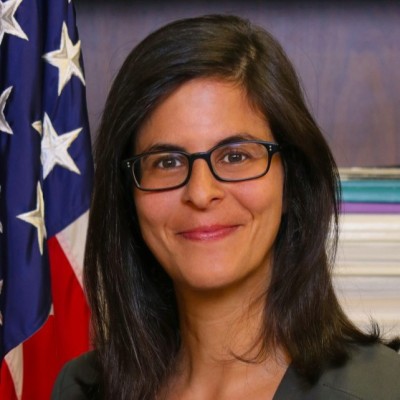
Tala H. Fakhouri, Ph.D., MPH
Co-Chairs

David
Madigan, Ph.D.

Demissie Alemayehu, Ph.D.
Steering Committee

Asieh
Golozar, Ph.D.

Kannan Natarajan, Ph.D.

Ron Wasserstein, Ph.D.
Speakers

Robert
Ball, M.D., M.P.H., Sc.M

Noam
Barda, M.D., Ph.D.

Brian
Caffo, Ph.D.

Qingxia (Cindy)
Chen, Ph.D.

Lauren Elizabeth
Eyler Dang, M.D., Ph.D., M.P.H.

Margaret Gamalo, Ph.D., FASA

Emre
Kiciman, Ph.D.

Junshui
Ma, Ph.D.

Subha
Madhavan, Ph.D.

Anthony Philippakis, M.D., Ph.D.

Hoifung
Poon, Ph.D.

Pranav
Rajpurkar, Ph.D.

Omer
Reingold, Ph.D.

David
Sontag, Ph.D.

Marc Adam Suchard, Ph.D.
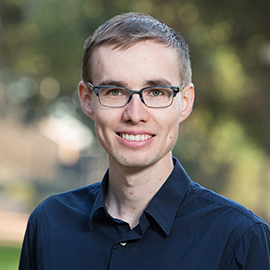
Stefan
Wager, Ph.D.

Yuanjia
Wang, Ph.D.

Petrina Kamya, Ph.D.
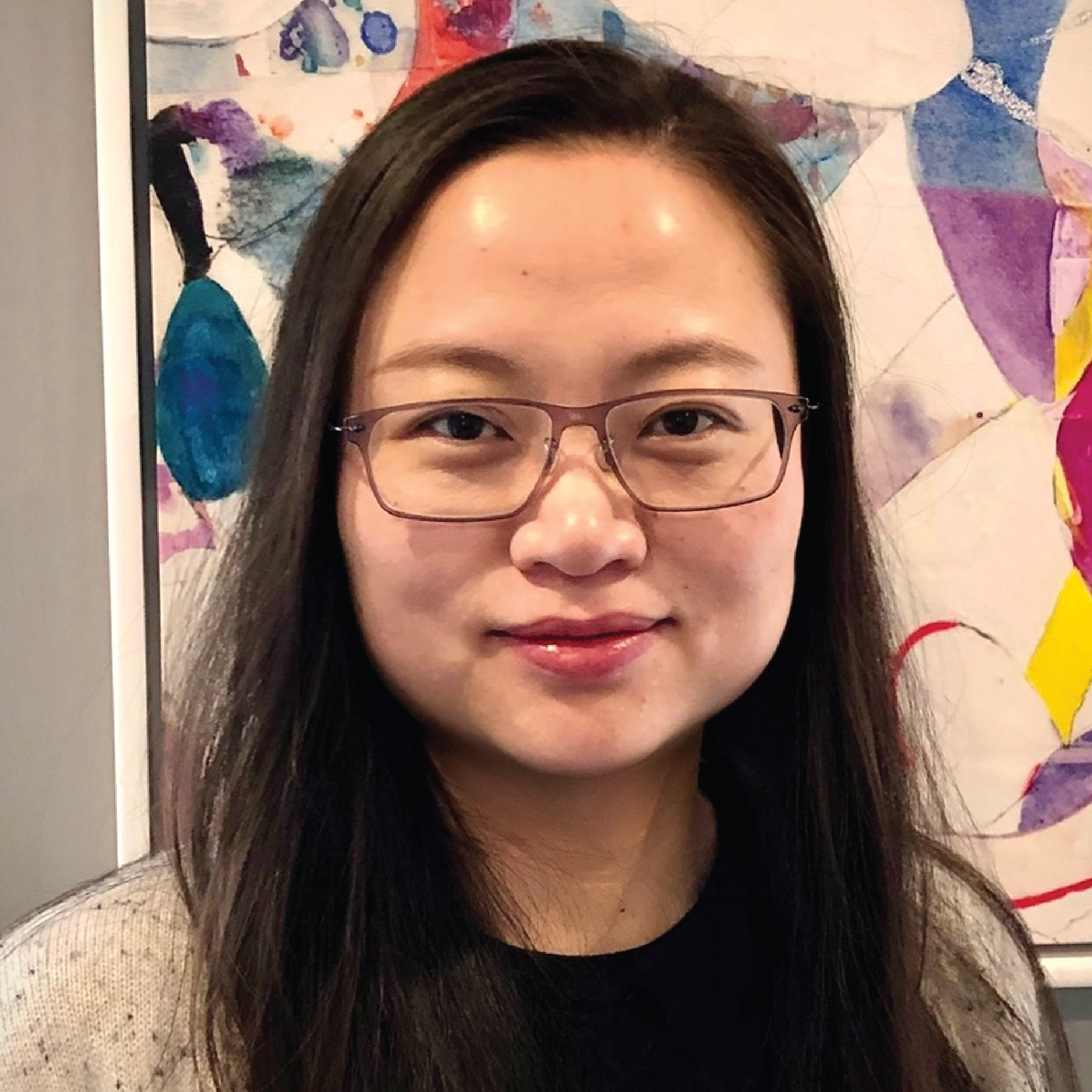
Bingzhi
Zhang, Ph.D.
Tutorial Instructors, Poster Coordinators

Haoda
Fu, Ph.D.

Susan
Gruber, Ph.D., M.P.H., M.S.

Nareen
Katta, M.B.A, M.S.

Hana
Lee, Ph.D., M.S.

Claire
Zhao, Ph.D.

Javier Cabrera, Ph.D.

Louisa H. Smith, Ph.D.

Ge Cheng

Mahan Dastgiri

Yajie Duan

Chloe R. Bennett, MPA

Victor M. Castro, MS, FAMIA

Natalia Coriano-Díaz, MPH

Darien Mather, MPH
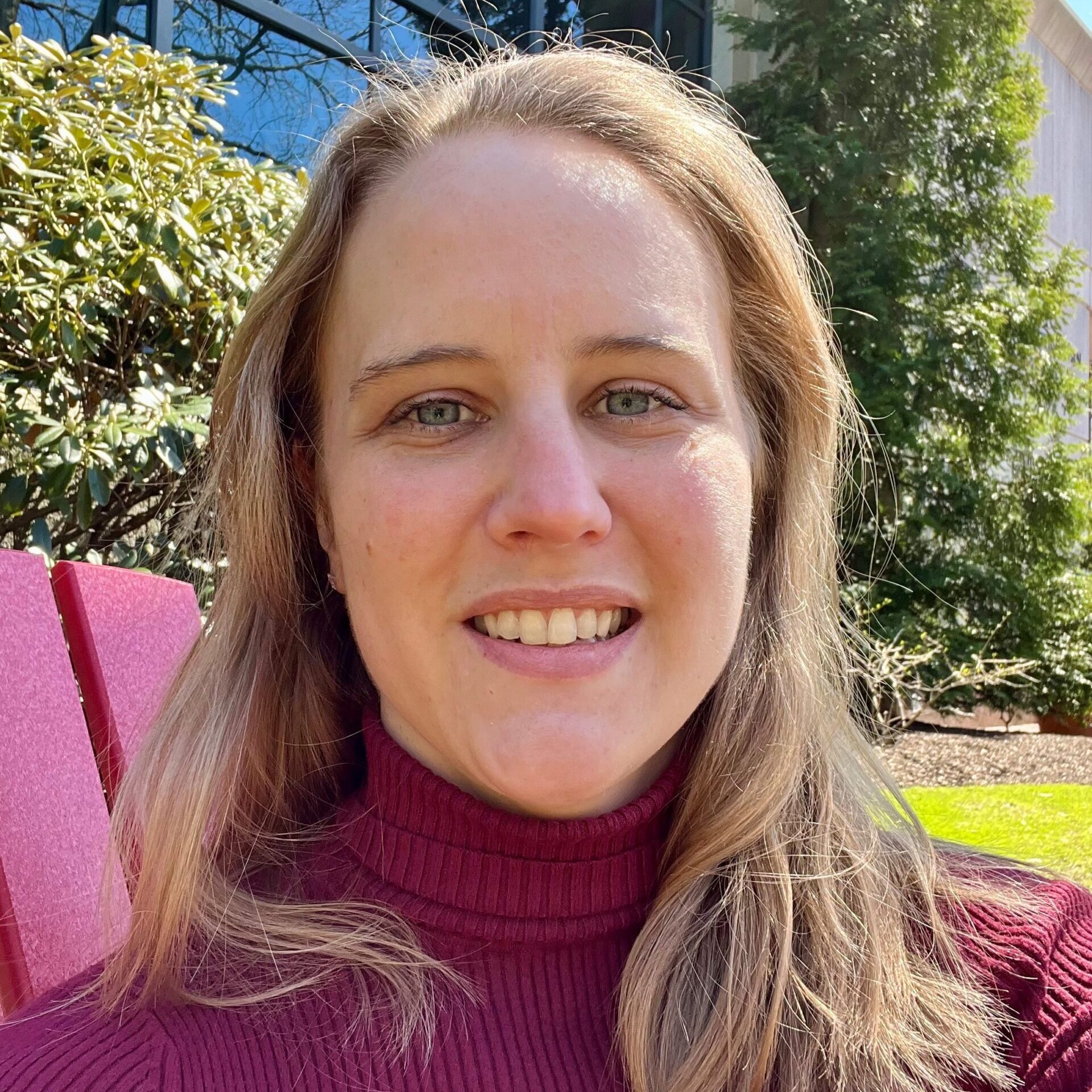
Victoria M. Nielsen, MPH

Mohana Saha
College of Professional Studies
Northeastern University
Contact Information
For program-related queries, please reach out to:
Demissie Alemayehu (demissie.alemayehu@pfizer.com)

Robert
Ball, M.D., M.P.H., Sc.M
Robert Ball M.D., M.P.H., Sc.M., is Deputy Director, Office of Surveillance and Epidemiology (OSE), Center for Drug Evaluation and Research, at the Food and Drug Administration (FDA) where he shares in responsibilities leading OSE staff in premarket and postmarket regulation of drugs and therapeutic biologics through adverse event surveillance, pharmacoepidemiology, risk management, and medication error preventionFrom 2008-2013, he served as the Director, Office of Biostatistics and Epidemiology, Center for Biologics Evaluation and Research, FDA where he led statistical and epidemiological evaluation of vaccines, blood, cell, tissue, and gene therapy products. His recent research has included the application of natural language processing and machine learning to improve the evaluation of medical product safety and effectiveness in electronic healthcare data systems.

Noam
Barda, M.D., Ph.D.
Noam Barda, M.D., Ph.D. I am a lecturer at the Department of Software and Information Systems Engineering & Department of Epidemiology, Biostatistics and Community Health Sciences at Ben-Gurion University. In parallel, I am the head of the Real-World Evidence Research and Innovation Lab and the Chief Epidemiologist at the Sheba Pandemic Research Readiness Institute (SPRI), both in Sheba Medical Center. I have broad training in medicine (MD, with a specialty in public health and epidemiology), computer science (B.Sc.) and biostatistics (M.Sc.). My post-doctorate was at the department of biomedical informatics at Harvard Medical School. My rResearch focuses on three main fields: causal inference, applied predictive modeling in healthcare, and algorithmic fairness. In each field, I try to use state-of-the-art methods, combining epidemiological and computational methods. Over the last several years, I have published extensively on the topic of Covid-19 vaccines and immunity. These publications have been featured in prestigious medical journals, and have been an aid in determining policy in multiple countries.

Brian
Caffo, Ph.D.
Brian Caffo, Ph.D., received his doctorate in statistics from the University of Florida in 2001 before joining the faculty at the Johns Hopkins Department of Biostatistics, where he became a full professor in 2013. He has pursued research in statistical computing, generalized linear mixed models, neuroimaging, functional magnetic resonance imaging, image processing and the analysis of big data. He created and led a team that won the ADHD-200 prediction competition and placed twelfth in the large Heritage Health prediction competition. He was the recipient the Presidential Early Career Award for Scientists and Engineers, the highest award given by the US government for early career researchers in STEM fields. He co-created and co-directs the SMART (www.smart-stats.org) group focusing on statistical methodology for biological signals. He also co-created and co-directs the Data Science Specialization, a popular MOOC mini degree on data analysis and computing. Dr. Caffo is the former director of the graduate programs in Biostatistics, president of the Bloomberg School of Public Health Faculty Senate, the recipient of the Golden Apple teaching award and AMTRA mentoring awards.

Tala H. Fakhouri, PhD., MPH
Tala H. Fakhouri, Ph.D., MPH, is the Associate Director for Policy Analysis at the Food and Drug Administration. Dr. Fakhouri manages a team tasked with developing, coordinating, and implementing medical policy with a focus on the use of Artificial Intelligence (AI) in drug development. She also contributes to the development of medical policy related to real-world evidence (RWE) for medical product development. In 2023, She was selected by the Office of Management and Budget to serve on the Federal Committee for Statistical Methodology for her expertise in statistical methods.
Prior to joining FDA, Dr. Fakhouri served as Chief Statistician for the CDC’s flagship population survey, the National Health and Nutrition Examination Survey (NHANES), which is recognized as the premier source of nationally representative data on the health of the nation. Prior to NHANES, she served as an Epidemic Intelligence Service Officer with the CDC, and deputy lead for health surveys at ICF-Macro International. Dr. Fakhouri published over 30 government reports, peer-reviewed papers, and book chapters.
Dr. Fakhouri earned a Ph.D. in Oncological Sciences from The Huntsman Cancer Institute at the University of Utah, an MPH in Epidemiologic and Biostatistical Methods from the Johns Hopkins University School of Public Health, and a postdoctoral fellowship in molecular biology and genetics from Harvard University, and holds a BSc Medical Technology form the Jordan University of Science and Technology.

Qingxia (Cindy)
Chen, Ph.D.
Qingxia Chen, Ph.D., is a Professor of Biostatistics, Biomedical Informatics, and Ophthalmology & Visual Sciences at Vanderbilt University Medical Center. She also serves as the Vice Chair of Education at the Department of Biostatistics and co-leads the statistical efforts at the Data and Research Center for the All of Us Research Program.
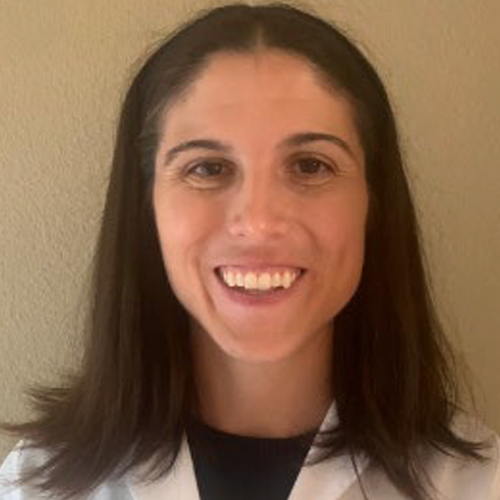
Lauren Elizabeth
Eyler Dang, M.D., Ph.D., M.P.H.
Title TBD
Lauren Eyler Dang, M.D., Ph.D., M.P.H., is a Statistician in the National Institute of Allergy and Infectious Diseases Biostatistics Research Branch. She received her Ph.D., in Biostatistics from University of California, Berkeley and her MD from University of California, San Francisco. Her research focuses on the application, dissemination, and development of causal inference and targeted learning methods, particularly as applied to global health and infectious disease research.

Junshui
Ma, Ph.D.
Junshui Ma, Ph.D., serves as an Associate Vice President, and the head of the Biometrics Research department at Merck Research Lab. He obtained his PhD in Signal Processing and Machine Learning from Ohio State University in 2001. Following his tenure as a postdoc at Los Alamos National Lab and a faculty member at Ohio State University, he joined Merck in January 2005. Over the past 18 years, he has participated in all stages of drug Research & Development (R&D), encompassing preclinical discovery, clinical development, regulatory filing, and translational medicine. A key area of his research involves the application of AI/ML to drug R&D. He has co-authored more than 30 peer-reviewed journal papers, in addition to numerous conference abstracts and posters.

Subha
Madhavan, Ph.D.
Subha Madhavan, Ph.D., is a dynamic and results-driven leader with a strong track record of excellence in organizations that operate at the nexus of science, technology and business. She has initiated and successfully directed several productive clinical research and development programs at the Georgetown Lombardi Comprehensive Cancer Center, MedStar hospital network, FDA, NIH and BioPharma industry. She was co-leader of the FDA’s Center for Excellence in Regulatory Science and worked with the oncology and vaccine teams. She was an advisory member to the Biden Foundation’s Cancer Moonshot Program and advised on pre-competitive data sharing initiatives across pharma, health tech companies and research organizations to drive innovation. She has been recognized for her work through several awards including the Service to America award in the Science and Environment category (2005), Research Acceleration Award by AACR and Pancreatic Cancer Action Network (2015), and Women in Tech Global award (2021). She is currently the Head of Clinical AI/ML & Digital Sciences at Pfizer worldwide R&D where she leads a team focused on advancing precision therapies across multiple treatment areas including Anti-Infectives, Oncology, Immunology & Inflammation among others.

Kannan Natarajan, Ph.D.
Kannan Natarajan, Ph.D., is the Head of Global Biometrics and Data Management (GBDM) and is a member of the Pfizer Research & Development Leadership Team at Pfizer Inc. The GBDM organization supports the global clinical development strategy and data sciences across all of Pfizer’s product portfolio. He is also the Chief Statistical Officer at Pfizer, managing statistical functional excellence across all Pfizer business units. Prior to joining Pfizer, Kannan was Senior Vice President and Global Head of Oncology Biometrics and Data Management at Novartis Pharmaceuticals. Kannan has been in the pharmaceutical industry for over three decades working across various therapeutic areas. Kannan holds a Ph.D., in Statistics from the University of Florida.

Anthony Philippakis, M.D., Ph.D.
Anthony Philippakis, M.D., Ph.D., is the chief data officer of the Broad Institute of MIT and Harvard, and the co-director of the Eric and Wendy Schmidt Center.
He trained as a cardiologist at Brigham and Women’s Hospital, with a focus on rare genetic cardiovascular diseases. At the Broad Institute he is the founding director of the Data Sciences Platform, an organization of over 200 software engineers and computational biologists that develops software for analyzing genomic and clinical data. In addition to his roles at the Broad Institute and Brigham and Women’s Hospital, Philippakis is a venture partner at GV, focusing on machine learning, distributed computing, and genomics. Philippakis received his M.D. from Harvard Medical School and completed a Ph.D. in biophysics at Harvard. As an undergraduate, he studied mathematics at Yale University, and later completed the Part III (equivalent to M.Phil) in mathematics at Cambridge University.

Hoifung
Poon, Ph.D.
Hoifung Poon,Ph.D., is the General Manager at Microsoft Health Futures. His research interest is in developing next-generation AI technology to accelerate progress in access, safety, and preventative care for precision health. At Microsoft, He leads biomedical AI research and incubation, with a particular focus on scaling real-world evidence generation by structuring all medical data. He obtained a B.S. with Distinction in Computer Science from Sun Yat-Sen University, and a Ph.D. in Computer Science and Engineering (my dissertation) from University of Washington. He is an affiliated faculty professor at University of Washington Medical School, and serves as co-PI for various academic projects such as DARPA Big Mechanisms. His past work spans diverse topics in machine learning and NLP, and has been recognized with Best Paper Awards in top conferences such as NAACL, EMNLP, and UAI. For more information, check out his publications and LinkedIn profile.

Pranav
Rajpurkar, Ph.D.
Pranav Rajpurkar, Ph.D., is an Assistant Professor at Harvard University and a researcher in the field of medical artificial intelligence. With a focus on medical image interpretation, Dr. Rajpurkar’s research lab strives to develop AI models that can match the proficiency of top-tier medical doctors. His research group is at the forefront of developing “Generalist Medical AI” systems that can closely resemble doctors in their ability to reason through a wide range of medical tasks, incorporate multiple data modalities, and communicate in natural language. Dr. Rajpurkar has published more than 65 academic papers which have received over 19K citations, including in Nature, NEJM, and Nature Medicine. His work has been covered by media outlets including NPR, The Washington Post, and Wired. In 2022, Dr. Rajpurkar has been recognized as a recipient of Forbes 30 Under 30 and as a Nature Medicine Early-career Researcher To Watch. Dr. Rajpurkar leads educational initiatives including the Harvard-Stanford Medical AI Bootcamp Program, and CS197: AI Research Experiences at Harvard. Prior to starting at Harvard in 2021, Dr. Rajpurkar earned his B.S., M.S., and Ph.D. degrees, all in Computer Science from Stanford University.

Omer
Reingold, Ph.D.
Omer Reingold, Ph.D., is the Rajeev Motwani professor of computer science at Stanford University and the director of the Simons Collaboration on the Theory of Algorithmic Fairness. Past positions include the Weizmann Institute of Science, Microsoft Research, the Institute for Advanced Study in Princeton, NJ, AT&T Labs and Samsung Research America. His research is in the foundations of computer science and most notably in computational complexity, cryptography and the societal impact of computation. He is an ACM Fellow and a Simons Investigator. Among his distinctions are the 2005 Grace Murray Hopper Award and the 2009 Gödel Prize.

David
Sontag, Ph.D.
David Sontag, Ph.D., is a Professor of Electrical Engineering and Computer Science at MIT, part of the Institute for Medical Engineering & Science, the Computer Science and Artificial Intelligence Laboratory, and the J-Clinic for Machine Learning in Health. His research focuses on advancing machine learning and artificial intelligence, and using these to transform health care. Previously, he was an Assistant Professor of Computer Science and Data Science at New York University.

Marc Adam Suchard, Ph.D.
Marc Adam Suchard, M.D., Ph.D., is Professor in the Departments of Biomathematics and of Human Genetics in the David Geffen School of Medicine at UCLA and in the Department of Biostatistics in the UCLA Fielding School of Public Health at the University of California, Los Angeles. He was elected as a Fellow of the American Statistical Association in 2012, and he received the COPSS Presidents’ Award in 2013.

Yuanjia
Wang, Ph.D.
Dr. Yuanjia Wang, Ph.D., is a Professor in the Department of Biostatistics and Department of Psychiatry at Columbia University, and a core member of the Division of Biostatistics at New York State Psychiatry Institute. She was elected as a Fellow of the American Statistical Association (ASA) in 2016. Dr. Wang works on developing data-driven approaches to explore relationship between biomarkers, clinical markers, and health outcomes to assist discoveries in disease etiology, and increase diagnostic capabilities of psychiatric and neurological diseases. Her methodological interests include statistical learning, analytics for personalized medicine, network analysis, and novel design and analysis of clinical trials. Her substantive research area of interest includes psychiatric disorders and neurological disorders.

Petrina Kamya, PhD.
Petrina Kamya, Ph.D., is the VP, and Global Head of AI Platforms and President of Insilico Medicine Canada, overseeing Insilico’s end-to-end generative AI-driven drug discovery platform, Pharma.AI. Before joining Insilico, Dr. Kamya’s career spanned many key stages of the drug discovery value chain from the early stages to commercialization. She holds a Ph.D. in chemistry and a BS in biochemistry from Concordia University.

Haoda
Fu, Ph.D.
Haoda Fu, Ph.D., is an Associate Vice President and an Enterprise Lead for Machine Learning, Artificial Intelligence, and Digital Connected Care from Eli Lilly and Company. Dr. Fu is a Fellow of ASA (American Statistical Association), and IMS Fellow (Institute of Mathematical Statistics). He is also an adjunct professor of biostatistics department, University of North Carolina Chapel Hill and Indiana University School of Medicine. Dr. Fu received his Ph.D. in statistics from University of Wisconsin – Madison in 2007 and joined Lilly after that. Since he joined Lilly, he is very active in statistics methodology research. He has more than 100 publications in the areas, such as Bayesian adaptive design, survival analysis, recurrent event modeling, personalized medicine, indirect and mixed treatment comparison, joint modeling, Bayesian decision making, and rare events analysis. In recent years, his research area focuses on machine learning and artificial intelligence. His research has been published in various top journals including JASA, JRSS, Biometrika, Biometrics, ACM, IEEE, JAMA, and Annals of Internal Medicine. He has been teaching topics of machine learning and AI in large industry conferences, including teaching this topic in an FDA workshop. He was board of directors for statistics organizations and program chairs, committee chairs such as ICSA, ENAR, and ASA Biopharm session. He is a COPSS Snedecor Awards committee member from 2022-2026, and will also serve as an associate editor for JASA theory and method from 2023.

Susan
Gruber, Ph.D., M.P.H., M.S.
Dr. Susan Gruber, Ph.D., M.P.H., M.S., co-founder of TL Revolution and Founder of Putnam Data Sciences, is a biostatistician and computer scientist specializing in Targeted Learning-based causal inference and predictive modeling. She is the former Director of the Biostatistics Center, Department of Population Medicine at Harvard Pilgrim Health Care and Harvard Medical School, and former Senior Director of the IMEDS Methods program at the Reagan Udall Foundation for the FDA. Her work focuses on improving methods for generating robust real-world evidence to support biopharmaceutical and medical decision making, and developing tools for data analysis using targeted maximum likelihood estimation (TMLE) and super learning (SL).

Hana
Lee, Ph.D., M.S.
Hana Lee, Ph.D., is a Senior Statistical Reviewer of the Office of Biostatistics (OB) in the CDER, FDA. She leads and oversees various FDA-funded projects intended to support development of the agency’s RWE program including multiple projects to develop causal inference framework for conducting non-randomized studies, to enhance analytic capacity using machine learning-based methods, and to explore various sensitivity analysis for unmeasured confounding to support regulatory decision-making. She is currently a co-lead of the RWE scientific working group of the American Statistical Association (ASA) Biopharmaceutical Section, which is a CDER-FDA public private partnership involving scientists from FDA, academia, and industry to advance the understanding of RWD/E to support regulatory decision-making.

Claire
Zhao, Ph.D.
Claire Zhao, Ph.D., is currently working for Pfizer as the Group Lead of Clinical AI/ML in AI/ML Quantitative and Digital Sciences (AQDS). She is based in Cambridge, MA. She works on building interpretable and interoperable AI/ML models that leverages multi-modal data to inform clinical development. In her previous work at Philips, she led the development of AI/ML solutions to improve clinical and operational workflow for healthcare workers and the hospital. She obtained her Ph.D. from the Department of Biomedical Engineering at Johns Hopkins University, with a thesis in Computational Medicine

Nareen
Katta, M.B.A, M.S.
Nareen Katta works as the Head of Data Science and Analytics at AbbVie. Nareen has over 20 years of experience in the pharmaceutical industry. In his current role, Nareen is responsible for building and executing the advanced analytics strategy, that covers both Scientific and Business Operations, across Clinical Development Continuum, Geostrategy and Study start-up, Centralized and Risk Based Monitoring, Site Engagement, Business Performance, Precision Medicine, Patient Safety and R&D. In addition, Nareen is actively engaged in evaluating the opportunities created by the technology trends like big data, automation, machine learning and AI, digital health etc. and strategically instantiating them at AbbVie to drive organizational transformation. Nareen has an MBA from The University of Chicago Booth School of Business and a MS in Electrical Engineering from University of Texas at Arlington.

Margaret Gamalo, Ph.D., FASA
Margaret (Meg) Gamalo, Ph.D., is currently VP, Statistics Head for Inflammation and Immunology in Pfizer Research and Development at Pfizer Inc. She combines expertise in biostatistics, regulatory science and adult and pediatric clinical development. Prior to joining Pfizer, she was Research Advisor, Global Statistical Sciences at Eli Lilly and Company and Mathematical Statistician at the Food and Drug Administration. Meg led the Pediatric Innovation Task Force at the Biotechnology Innovation Organization and spearheaded the push for extrapolation as a default strategy in pediatric drug development to expedite labelling changes in children. She is also a member of the European Forum for Good Clinical Practice – Children’s Medicine Working Party that provided guidance on inclusion of adolescents in adult research. Her numerous scientific publications and outreach work in statistics is geared towards efficient methodologies to expedite development of drugs in pediatrics and areas of high unmet medical need. Meg is currently Editor-in-Chief of the Journal of Biopharmaceutical Statistics and is passionate about promoting women’s role in statistical research. She is involved in many statistical activities in the industry including the recently launched Statistical Perspectives on AI/ML in Pharmaceutical Product Development within the ASA. Recently, she was awarded the distinction of Fellow of the American Statistical Association. She is also actively mentoring statisticians in the pharmaceutical industry and in the building of biostatistics as a research discipline in the Philippines. She received her PhD in Statistics from the University of Pittsburgh and Master of Applied Mathematics – Operations Research from the University of The Philippines

Louisa H. Smith, Ph.D.
Louisa H. Smith, Ph.D., Assistant Professor, Department of Health Sciences, at Northeastern University. Dr. Smith is an epidemiologist who focuses on developing and applying methods for causal inference in public health research. Dr. Smith approaches her applied research using a target trial framework, through which she has helped to clarify questions about exposures during pregnancy and to improve understanding of the effects of COVID-19 on birth outcomes. Her work in prostate and breast cancer addresses questions about complex treatment strategies over time. Her previous work on sensitivity analysis extended the E-value framework to quantify possible effects of selection bias, alone and jointly with other biases. She has also contributed to the literature on mediation, including sensitivity analysis for unmeasured mediator-outcome confounding. Currently she is researching methods to assess sensitivity to missing data under various assumptions.

Javier Cabrera, Ph.D.
Javier Cabrera, Ph.D., is a Professor in the Department of Statistics and the Department of Medicine, Rutgers University, and a member of the Cardiovascular Institute of New Jersey and the Institute of Quantitative Biomedicine. He is a winner of the 2010 SPAIG award of the American Statistical Association, a Fulbright fellow, and a Henry Rutgers fellow. He was Director of the Institute of Biostatistics at Rutgers University and the chief co-editor of the journal, Computational Statistics and Data Analysis. Professor Cabrera has numerous publications and books in Statistics and Biostatistics on diverse topics, including, Big Data for medical research, functional genomics, analysis of genomic data, statistical computing, graphics, and computer vision. He received his PhD from Princeton University.

Emre
Kiciman, Ph.D.
Emre Kiciman, Ph.D., is a Senior Principal Researcher at Microsoft Research, where his research interests span causal inference, machine learning, the security of AI systems, and AI’s implications for people and society. He received his PhD in Computer Science from Stanford University.

Bingzhi
Zhang, Ph.D.
Bingzhi Zhang, Ph.D., is a director of biostatistics in the Statistical Innovation Hub at Sanofi. Her work is dedicated to bridging the gaps between project execution and innovative study design and decision-making approaches, making use of emerging sources for evidence generation. Her research interests include study designs utilizing external/historical data, master protocols and AI/ML-powered study design. She received her Ph.D. in Biostatistics from Columbia University.

Stefan
Wager, Ph.D.
Stefan Wager, PhD., is an associate professor of operations, information and technology at Stanford Graduate School of Business, and an associate professor of statistics (by courtesy). He received his PhD in statistics from Stanford University in 2016, and also holds a BS (2011) degree in mathematics from Stanford. Dr Wager’s research lies at the intersection of causal inference, optimization, and statistical learning. He is particularly interested in developing new solutions to classical problems in statistics, economics and decision making that leverage recent developments in machine learning.

Asieh
Golozar, Ph.D.
Asieh Golozar, Ph.D., is a physician-epidemiologist and biostatistician with more than 20 years of experience in health services research, real-world evidence generation, and evaluation of healthcare interventions within government, academia, and industry. She holds a PhD in epidemiology from the Johns Hopkins University School of Public Health and a Master of Health Sciences in biostatistics from JHU, supported by a postdoctoral research fellowship award with the National Cancer Institute’s Division of Cancer Epidemiology and Genetics. She earned her medical degree from the Tehran University of Medical Sciences.
After receiving her PhD, Golozar joined the faculty at the JHU Department of Epidemiology, where she focused on cancer and diabetes epidemiology, the application of epidemiologic and statistical methods for robust synthesis of evidence from epidemiologic data, and applying evidence-based findings to strengthen public heath infrastructure and policies. In 2017, she moved into industry roles at Bayer AG, AstraZeneca, and Regeneron, where she led lifecycle management and real-world evidence generation activities in oncology, women’s health, and other therapeutic areas.
As a professor of the practice, Golozar brings a comprehensive knowledge of healthcare systems to Northeastern. She also has the skills in research methodology and statistics required for addressing safety and effectiveness outcomes and risk assessment, and for generating high quality real-world evidence (RWE) from real-world data. She has played leading roles in large-scale private-public partnerships, including the Innovative Medicines Initiative (IMI) Big Data for Better Outcomes project and the IMI PIONEER Prostate Cancer Study-a-thon.
Since 2018, Golozar has led the OHDSI Oncology Working Group, endeavoring to extend the OMOP common data model to support oncology use cases and advance oncology real-world evidence research. In 2021, Golozar received an OHDSI Titan Award for Clinical Application. In addition to her role at Northeastern, Golozar is an adjunct faculty member at the JHU School of Public Health and vice president of data science at Odysseus Data Services, a leading RWE technology vendor.

Ron Wasserstein, Ph.D.
Ronald L. (Ron) Wasserstein, Ph.D., is the executive director of the American Statistical Association (ASA). Wasserstein assumed the ASA’s top staff leadership post in August 2007.
In this role, Wasserstein provides executive leadership and management for the association and is responsible for ensuring that the ASA fulfills its mission to promote the practice and profession of statistics. He also is responsible for a staff of 36 at the ASA’s headquarters in Alexandria, Va. As executive director, Wasserstein also is an official ASA spokesperson.
Prior to joining the ASA, Wasserstein was a mathematics and statistics department faculty member and administrator at Washburn University in Topeka, Kan., from 1984–2007. During his last seven years at the school, he served as the university’s vice president for academic affairs.
Wasserstein is a longtime member of the ASA, having joined the association in 1983, and prior to becoming Executive Director had been active as a volunteer in the ASA for more than 20 years. He was a member of the ASA Board of Directors from 2001–2003.
Wasserstein is a Fellow of the ASA and of the American Association for the Advancement of Science. He was presented the John Ritchie Alumni Award and Muriel Clarke Student Life Award from Washburn University, the Manning Distinguished Service Award from the North American Association of Summer Schools, and the George Mach Distinguished Service Award from Kappa Mu Epsilon National Mathematics Honor Society. For his community service, he received the Champion of Character Award from the Fairfax County Athletic Council and the Administrator of the Year Award from the Virginia Youth Soccer Association.
Ron and his wife, Sherry, live in northern Virginia and enjoy traveling, movies, binge-watching TV series, live theater, audio books, and doting on their children and grandchildren.

Demissie Alemayehu, Ph.D.
Demissie Alemayehu, Ph.D., is Vice of Biostatistics and Head of Statistical Research and Data Sciences (SRDC) in Global Biometrics and Data Management (GBDM) at Pfizer Inc. Demissie has over 25 years of leadership experience in the pharmaceutical industry and has supported projects in almost all therapeutic areas. Demissie has also been influential externally, with decades of research and teaching experience at major institutions. He has co-authored three monographs and published numerous manuscripts in peer-reviewed journals. In addition, he has held important offices at key professional societies, and has served on editorial boards of major journals. He is an elected Fellow of the American Statistical Association, and holds a Ph.D. degree in Statistics from the University of California at Berkeley.

David
Madigan, Ph.D.
David Madigan, Ph.D., came to Northeastern from Columbia University, where he served as executive vice president for arts and sciences and dean of the Faculty of Arts and Sciences. In those roles, he oversaw five schools with 27 departments and some 50 research centers and institutes. He led successful initiatives to expand lifelong learning programs, and to make Columbia’s faculty and student body more diverse. Notably, he spearheaded a program to ensure that Columbia’s first-generation students would have the mentoring and support they needed to succeed in a highly demanding academic environment.
At Columbia and in his previous position as Rutgers University’s Dean of Physical and Mathematical Sciences, Madigan developed new interdisciplinary learning and research collaborations, and forged industry partnerships to support student and faculty innovation. Under his leadership as department chair, Columbia’s statistics faculty ascended to the ranks of the nation’s top 10.
A fellow of the American Association for the Advancement of Science, Madigan has long been a leading researcher at the intersection of Big Data with healthcare innovation. While serving on the statistics faculty at the University of Washington, he was a member of the world-renowned Fred Hutchinson Cancer Research Center.
Madigan also brings a strong global perspective to Northeastern. A native of Ireland, he has led large-scale global collaborations involving academic and pharmaceutical company researchers and government regulators in the U.S. and Europe. Beyond the halls of academia, he has experience as an entrepreneur, innovation leader, researcher, and consultant, both in the U.S. and Ireland. He earned his BA and PhD from Trinity College Dublin.
